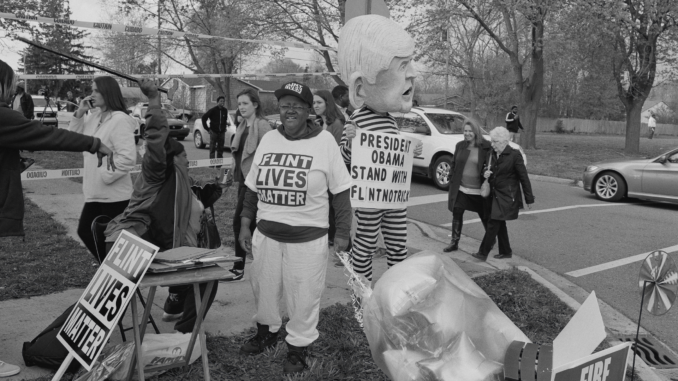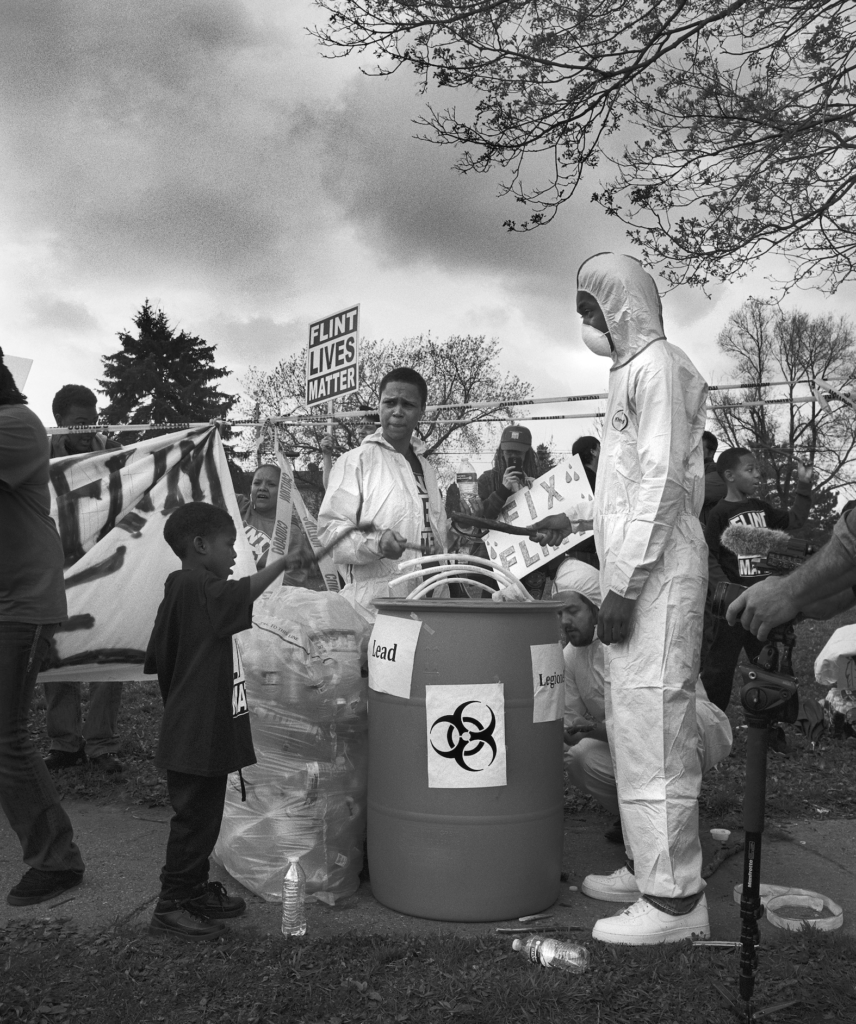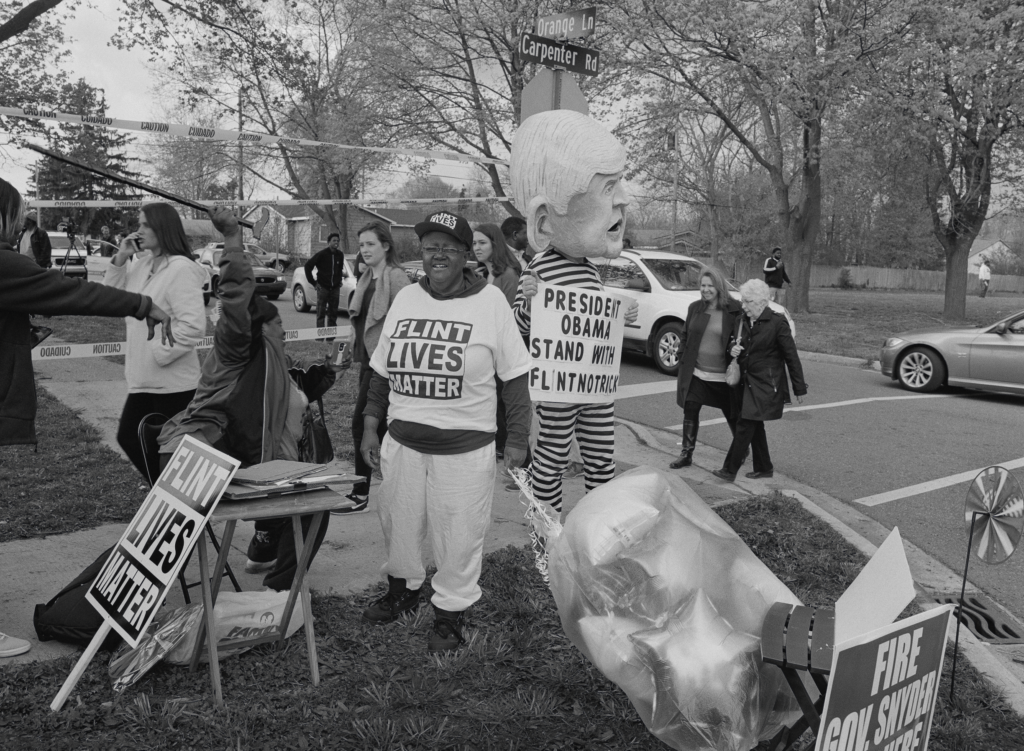
February is Black History Month, and it’s a time to reflect upon the incredible journeys and resilience of Black individuals and communities, including in more recent history. Among these tales of strength and perseverance is the inspiring story of visual artist, photographer and advocate LaToya Ruby Frazier and her deep connections to the people of Flint, Michigan.
Born in 1982 in Braddock, Pennsylvania, LaToya Ruby Frazier’s roots were firmly planted in a community marked by struggle and hardship. Growing up amidst economic downturns and environmental challenges, Frazier’s lens has captured the realities of her surroundings.
Through her art and advocacy, Frazier makes vivid photographs of Black life in America, drawing attention to injustices and inequalities. Her work challenges stereotypes and gives a voice to those who are often silenced by society. Frazier’s artistic practice calls for social justice, cultural change, and commentary on the American experience. Frazier’s work is held in numerous public collections, including the Museum of Modern Art Solomon R. Guggenheim Museum in New York, the Carnegie Museum of Art in Pittsburgh, and many others. She has received many honors and fellowships including the John D. and Catherine T. MacArthur Foundation’s MacArthur Fellows Program.
Frazier’s work, a short documentary film from 2016 entitled Flint is Family, made courtesy of the artist and Gladstone Galley, is currently on view in the Richard and Carole Cocks Art Museum’s exhibition The World in Which We Live: the Art of Environmental Awareness.
LaToya Ruby Frazier will be at the Art Museum on February 29 from 3-4:30 PM for a screening of the short film and to engage in conversation about her work in the context of the special exhibition The World in Which We Live.
The Flint is Family film stems from a series of black and white photographs taken by Frazier, which explore the personal stories and social and health inequalities experienced by families affected by contamination of the public water supply in Flint, Michigan. It was a decade ago, in 2014, that the water crisis began in Flint, when the city moved its drinking water supply from Detroit to the Flint River to save funds, leading to increased lead contamination of the city’s water supply, impacting many residents of Flint, the majority of whom are Black. LaToya Ruby Frazier spent five months living in Flint, documenting the lives of those impacted by the water crisis, and making efforts to help bring free and clean water to its residents. The water crisis in Flint marks just one moment in the history of health inequalities that continue to impact many communities today.
The Art Museum program is followed at 6 PM by a public lecture by LaToya Ruby Frazier entitled “Art as Transformation: Using Photography to Effect Change” taking place at the Armstrong Student Center at Miami University.
As we reflect on Black History this month, it’s appropriate to learn about and recognize the achievements of individuals such as LaToya Ruby Frasier as well as the collective resilience of Black communities across America.
These events are part of the 2023-24 John W. Altman and Miami University FOCUS Programs on Environmental Justice. The programs are made possible by the Humanities Center, the Department of Art, and the Richard and Carole Cocks Art Museum at Miami University.



Three of the photographs from the Flint is Family series (2016), courtesy of the artist and Gladstone Gallery.
